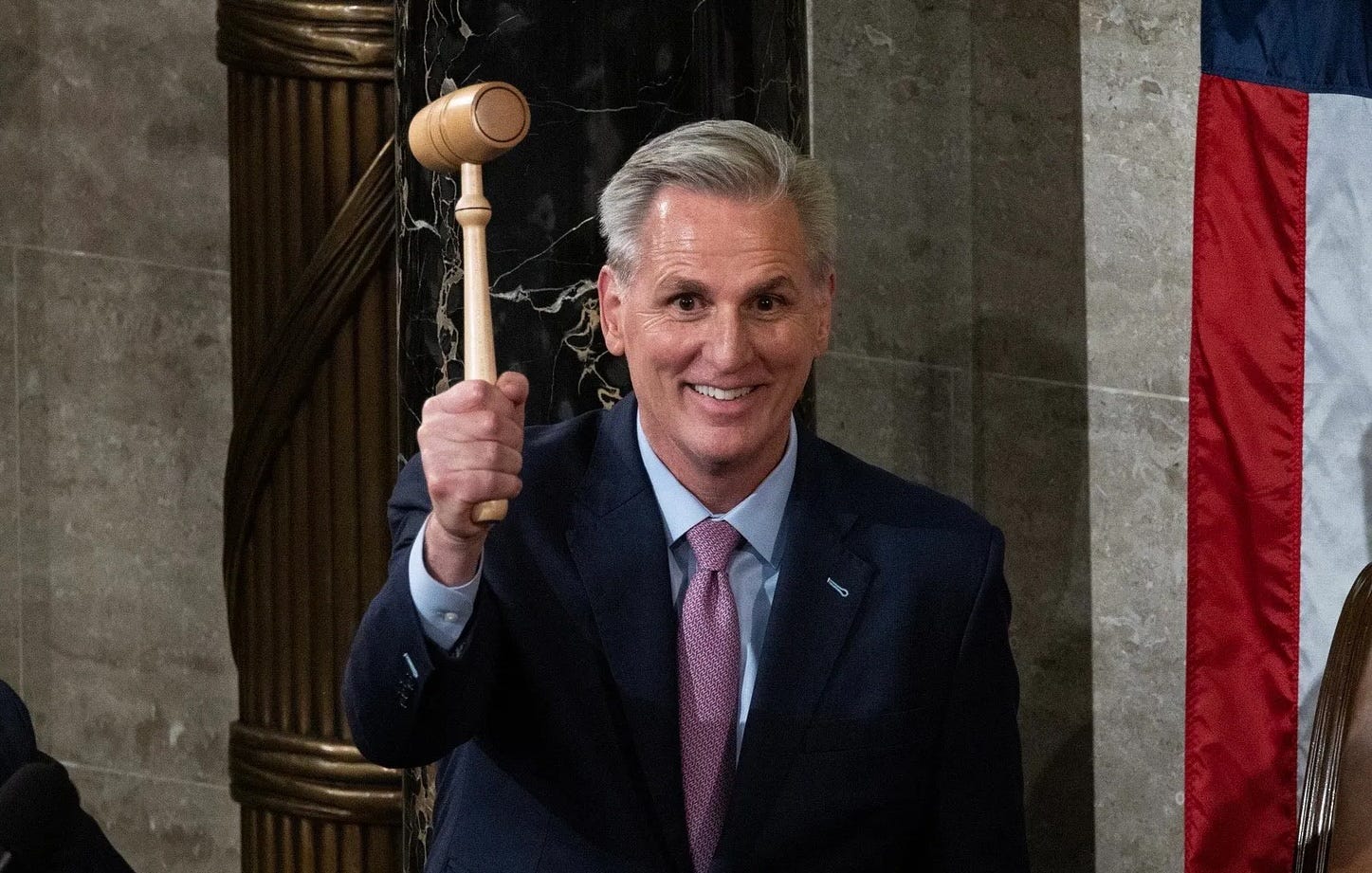Remember this guy?
The leader of Germany’s center-right party, Friedrich Merz, was sworn in as chancellor today, but not before going through the embarrassing spectacle of losing his first vote, as eighteen members of his own Red-Black coalition declined to support his confirmation. He was confirmed on a second vote, though still without the unanimous support of his own coalition members.
Merz’s coalition is extraordinarily narrow considering that it encompasses the two dominant parties for Germany’s entire post-war history: the center-right CDU and CSU and the center-left SPD. The once-grand coalition ain’t so grand anymore. But it’s still crazy that, after months of painstaking negotiations leading to a coalition agreement, Merz couldn’t be assured of the support of all of its members. What were the “no” voters thinking?
We can’t know, because both votes were secret ballots. It’s possible that the dissenters were members of the SPD who wanted to send a warning that their party wasn’t to be taken for granted, and that Merz should think twice about taking any actions or proposing a budget or legislation that SPD voters might object to. It’s also possible though that the dissenters were members of the CDU who are frustrated at how much was already granted to the SPD—the party that lost the last election decisively—in order to woo them into coalition. If, even after forming a coalition, Merz still has to worry about either possibility, to say nothing of both together, then this is going to be a very weak government indeed—which is precisely why the AfD has been chuckling all day.
The whole thing reminds me very much of Kevin McCarthy’s short-lived speakership. At the time of Matt Gaetz’s revolt, Matt Yglesias argued that McCarthy’s troubles were due to the poor design of America’s political institutions, which, because they didn’t contemplate parties, wind up giving extreme factions like the Freedom Caucus a great deal of power to hold institutions hostage. I expressed some criticism of his views at the time, and pointed to Germany as an example of a country with very different institutions (ones Yglesias preferred) that was having some of the same kinds of trouble. So I feel a little bit vindicated right now.
Leaning on that feeling of vindication, I want to argue with Yglesias again to make a broader point about the current moment. Yglesias is one of a number of commentators who has been pounding the table for Democrats to be more moderate in order to win back the center and take advantage of Donald Trump’s falling approval and the potential for a significant economic downturn in response to his trade war. He’s got a piece up today arguing that Democrats who agree with this analysis shouldn’t be playing pundit and arguing in favor of greater moderation—they should just take more moderate stances on specific issues. You can, after all, just do things—as 35 Congressional Democrats just demonstrated with respect to California’s ban on gas-powered vehicles.
I have a great deal of sympathy for this point of view—but here’s the thing. Both the SPD and the CDU did the responsible thing and made the compromises necessary to form a centrist coalition. But they can read the polls, and the polls say that their voters aren’t happy with that choice. The CDU has lost several points before even taking power, and the SPD has lost a point or two as well. Who has gained? The AfD primarily, but also Die Linke, Germany’s far-left party. Of course, a large majority in Germany opposes the formation of a government including the AfD, and I suspect an even bigger majority opposes the agenda of Die Linke. But the center is shrinking anyway, and the mere formation of a centrist government gives an instantaneous boost to the extremes, before that centrist government has even formed, much less failed.
That dynamic in and of itself makes it hard to impose party discipline on both left and right to hold the centrist line, and empowers extremist or rejectionist factions. Which is precisely what leads to pointless debacles like Merz’s first failed vote to be confirmed as chancellor.
We’ve seen that dynamic operating inside the Republican Party for two decades now if not longer, and it has only been partly superseded by Donald Trump’s cult of personality. The dynamic is different inside the Democratic Party, but the tyranny of consensus—enforced sometimes from above and sometimes from below and sometimes in ways that are hard to discern—that obtains in Democratic circles is really just another version of the same thing.
Which is why the best way for individual Democrats to express their heterodoxy is by breaking with the party consensus, not running against the left or the right but against the party itself. To some extent this is what Yglesias is talking about when he says Democrats should just be more moderate rather than talking about how they should be more moderate. But the problem with what he calls “dog-whistle moderation” isn’t just that it isn’t substantive enough—it’s that it isn’t independent enough. When you say “we need to be more moderate,” the “we” implies that you can’t just do what you want, that your own decision is going to be the product of some kind of larger consensus. But that consensus is precisely the problem. Democrats need to demonstrate that they are their own masters, and not prone to group-think.
But if you’re not subject to group-think, you’re also not too readily subject to discipline. Which brings us back to Merz. Who knows—maybe the rebels weren’t Freedom Caucus types or Squad types. Maybe they were the German equivalent of Kyrsten Sinema or Nancy Mace types, revolting for idiosyncratic reasons discernible only to themselves.
Probably not, though. After all, a secret ballot isn’t a very effective way to attract attention to yourself.




